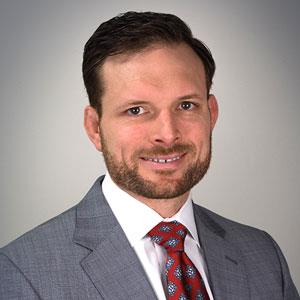Personal Lines Insurance with Justin Staebler
Is an umbrella liability policy part of your financial plan? Justin Staebler talks about why everyone should consider adding one and the important variables to consider when evaluating coverage!
Listen to us On
About the Episode
LifeBlood: We talked about personal lines insurance, the idea of risk transfer, the biggest mistakes people make when evaluating insurance coverage, why you should have an umbrella liability policy and why with Justin Staebler, Senior Vice President of Personal Insurance at Johnson Financial Group.
Listen to learn how to shift your thinking when it comes to how you consume insurance products!
For the Difference Making Tip, scan ahead to 20:22!
You can learn more about Justin at JohnsonFinancialGroup.com, Facebook, Twitter, Instagram, YouTube and LinkedIn.
Thanks, as always for listening! If you got some value and enjoyed the show, please leave us a review wherever you listen and subscribe as well.
You can learn more about us at MoneyAlignmentAcademy.com, Twitter, LinkedIn, Instagram, Pinterest, YouTube and Facebook or you’d like to be a guest on the show, contact George at [email protected].

George Grombacher
Lifeblood Host

Justin Staebler
Guest
Episode Transcript
Come on.
We’re gonna live blood. This is George G. And the time is right welcome today’s guest strong and powerful. Justin Stabler. Justin, are you ready to do this? Let’s do it. Let’s Let’s go. Justin is the Senior Vice President of personal insurance with Johnson Financial Group that focused on managing risk and protecting assets excited to have you on, Justin, tell us a little bit about your personal life more about your work and why you do what you do.
Justin Staebler 0:37
Thanks for having me on. Really appreciate you having me on your podcast. I’m married to an amazing wife, Annie, who we have four children with that are extremely crazy and active that keep us running like crazy, but we’d love it. I’m passionate about doing it. And I love activities my kids do as well. And I also love the outdoors. I’m at peace out there. And part of the reason why I love bow hunting so much is because it’s the peace of being out in nature and just the things to watch and Jean, and I probably more enjoy watching, watching nature than actually doing, doing the hunting part of it. But why I do what I do. I’m one of the interesting people that actually are passionate about insurance. A lot of people look at insurance as a necessary evil. I look at it as I’m protecting people’s most valuable assets, I’m helping them understand what their what the risks are saving them from financial, financial ruin and hardship is kind of why I I’m really passionate about what I do.
george grombacher 1:47
I appreciate that very much. How did you get into it.
Justin Staebler 1:51
Um, like a lot of people in the insurance world I kind of fell into it. My dad has a background in financial planning. So I was always interested in that. But he had a small Hobby Farm. So I was the one that did the majority of the work and started a business at the age of four with chickens and cattle. But I always was drawn to you know, a little bit of life insurance, and things that he talked about there. But after college, I started I moved out to Denver, Colorado for a short period of time, start working for enterprise rent a car and then I was in Illinois. And then now I came to Wisconsin and I got introduced to insurance is you know, I looked at it when I first was buying my for my vehicle, my renter’s as it’s something I have to have whatever, I don’t really want to ever use it even though I did get a car accident when I was younger. But it was just something that was there. Once I got into it, I started understanding a little bit about insurance, as I fell into it is a job for someone to be an entrepreneur in. And I just kept diving deeper and deeper into understanding what it actually is. And instead of being a consumer of it, I became an advocate for it.
george grombacher 3:09
Nice, I appreciate that. So there are probably a lot of folks out there that hear personal lines insurance to hear risk management, and they do think that’s pretty boring. It’s pretty bland. How can you get excited about that, but to your point, it’s the foundation of our financial worlds. And without that if we don’t have a strong foundation, all the all the fun FinTech apps out there, and the Robin Hood’s of the world and cryptocurrency it just doesn’t matter. Because when something happens, well, everything can fall apart.
Justin Staebler 3:44
That’s absolutely correct. You think about it is a lot of times where you’re protecting as your largest asset, you don’t necessarily understand until something happens. And we go through life, we hope that you never have a total loss of any sort or you something something happens where, let’s say you’re out renting a boat, and you have accidentally hit something or somebody and cause a major, major accident and then all sudden, you start to understand the importance of actually having insurance to protect all the things that you have worked your entire life to build. And now elements, all insurance companies and all insurance contracts are not built the same. So understanding what you are actually purchasing and that’s what I like most about is just educating people of how it protects you. All insurance really is is strictly a risk transfer. You can have your deductibles on your homeowners policy or your autos as high as you want. That’s yourself retain yourself retain that risk. So you’re not worried about filing a claim until it gets up to X dollars. And also same on the liability side. Anything below you know a lot of people go for a million I think that’s a little bit too little open umbrella, but you can start at a million dollars for an umbrella and you can go up to $15 million. And remember, it’s whatever portion of your assets or future assets you want to protect. That’s where the liability comes in. And you look at your homeowners understanding what type of replacement cost you have, you have guaranteed replacement cost or replacement costs up to a certain percentage over that. So there’s so many things that when I’m talking with someone or my team talking with somebody, we really want to educate them and make them comfortable. So at night, when they go to bed, they do not have to worry about and think about, Do I have enough insurance? Do it? Do I have this covered or that covered? No, I have my team of people that I’ve talked to, we’ve communicated understand what I have, I can put that on my mind, I don’t like it, it’s boring, I have someone else that handles that. And that’s the importance of actually having an advocate for you.
george grombacher 5:45
Like that’s a great term for it is having an advocate. Because if I were just to go and buy homeowners insurance, or an umbrella policy online, I probably wouldn’t be thinking about all the things that I should be thinking about.
Justin Staebler 6:01
Absolutely. And you know, there are a lot of lot of things that are really simple to purchase online. And, and that’s a lot of the challenges as an independent agent, we represent a lot of different carriers, the technology, we do not have quite as much as what they do, because they’re working with one specific carrier. But to that point, you become you start working with an advocate that understands the risk and can have a conversation say, you know what, George, it sounds like you have two cars a house, and you’d like to vacation a lot and traveling, you also have a UTV or ATV and in a boat, so this is the type of coverage. Oh, that’s right, you told me the other day you got a trampoline, this is how your risk is changed. Now that you have a trampoline, and you’re thinking about doing addition to it. Now it might want to start talking about a builder’s risk. But understanding that as a person, in most people, they don’t understand that. And when they go online, they click a bunch of buttons and say, Oh, it looks like you have a good policy where you could, but why not actually have a conversation with someone that can be your advocate. They’re theirs pros and cons to every side of it and understand it, our job. And my team’s job is to really educate people so that they understand what they have.
george grombacher 7:18
Why wouldn’t somebody have a conversation with somebody who’s just they don’t want to take the time or they’re worried about cost.
Justin Staebler 7:25
It’s both everyone feels that, you know, you go online, you can click a few buttons, and you can get a cheaper rule. I always I always joke with people, I can get you the cheapest policy, give me $1 give us a sheet of paper, put that in front of your car in that car while you’re protected. It’s kind of a joke, but it’s to the terminology that, you know, a lot of times people will go out and they’ll buy a very inexpensive car, but they might get a couple different options with that car. Or they might want to go get the Cadillac Escalade that with every Bell and whistle and they they’re purchasing something different because of what they want in that. And then understanding why not have someone help you understand what you what you want for your insurance, so you understand how your cover in regards to cost, there really isn’t too much difference. The difference comes into play with what protection you have, and what coverage you have, for example, on a homeowner’s policy, you can buy your standard homeowner policy with 100% replacement costs. Or you can accidentally click a button that says you’re an actual cash value, which in the insurance world we see ACV The difference is a replacement cost is going to replace like quality like kind and actual cash value is going to take away depreciation so I have a 10 year old roof on my house. Well there instead of paying what it cost to replace the roof, it’s going to give you the money that the roof is worth at that point in time. So just those are just a couple things. There’s things like water sewer backup, and how that affects you. It’s becoming pretty common for a lot of people to look at flood policies. Well, that’s not one of the buttons that you typically can click on any any webpage to get on your homeowners policy that you can get. Cyber is becoming a lot more a lot more questions are becoming about it. Everyone’s hearing about all these hacks. We all get 100 spam, phone calls and emails on a daily basis. So how’s that gonna affect us? What type of protection do I have? What happens when they get into my bank account? You know, a lot of things can come up. And there’s a million other different types of coverages. Do you need every coverage? No, absolutely not. You just need to have a conversation with someone so that you can understand what you are purchasing. It’s It’s no good to pay for the most expensive thing out there and think you have everything. It’s better to have a conversation and understand and have that policy tailor fit for you so that you don’t have to worry at night.
george grombacher 9:49
That certainly makes sense. What are certainly buying an umbrella policy, I imagine that that there’s probably not a large percentage of the popular that owns an umbrella policy. Do you have a sense of what the what those numbers are? And say it’s 10%? Or how, how do you think about that should should more people consider that kind of coverage.
Justin Staebler 10:13
I think everybody should have an umbrella I, we’ve talked about it with with my team, we have gone out and sent out mailings and phone calls to all of our clients that do not have it. It’s something that’s important, hopefully, you never have to use it. We’ve, you know, I’m pretty jaded in the role I sit in. Because I’ve seen the worst of the worst. I’ve seen situations where people have gone out and rented boats, and they do have a $3 million umbrella and we’ve paid the policy Max, one of their kids comes home and uses their vehicle that’s no longer on their policy, and accidentally causes a very, very major accident. And all sudden, the policy max comes in, you never think you’re going to need it until after the fact that you realize you now need it. And why not be protected. You know, in Wisconsin, you look at an umbrella, it’s about $150 for two cars in a home. Obviously, there’s a lot of factors that plan so you have a trampoline. So you have a pool, so you have utvs, ATVs, motorcycles, that’s going to affect the cost of your umbrella. But typically you’re looking at about $150 a year for a million dollars, it could go as low as $120. So it’s not that inspect it. not that expensive. If you look at it in regards to having a million dollars worth of coverage in it, the cool thing about it is it’s worldwide coverage, it covers you wherever you’re at on top of it, it covers you if you rent something, you have no insurable interest to add that thing you’re renting to your policy, but why not have some some low liability that goes over top of that, God forbid something does happen. And we’ve paid out several claims, very high dollar amounts for people that have rented things, versus actually when they own them.
george grombacher 12:02
Yeah, there’s so many different scenarios that are sort of running through my mind, right? And 100 150 bucks, that’s, uh, that is talking about risk transfer, seems like that would almost be a no brainer. And that’s just to sort of get that basic level of a million dollars and having a conversation to help educate people on Yeah, million dollars is good. But tell me a little bit more about your situation, to figure out what the correct amount is, is is for you to
Justin Staebler 12:31
a lot. A lot of people think like, well, I’m just starting out, I don’t, I don’t need an umbrella. Well, the thing you don’t realize is they can come after your future earnings. So that’s what the umbrella is there to protect you is also your future earnings, you don’t plan to be making the same amount that you make today that you’re going to make tomorrow. But why would you want to lose a percentage of that for the rest of your life, to pay off this debt that God forbid something happens?
george grombacher 12:56
Yeah, I don’t, I don’t know that I haven’t realized that and come after future earnings. So let’s think about all this, right, we’ve talked about risk, there’s probably a very low probability that you’re going to use this, but the consequences and the catastrophic costs, if you do need it, that’s why you buy insurance.
Justin Staebler 13:19
100%, you think about it, you know, and I’m gonna use Wisconsin rates in there, one of the lowest in the country. But we can look at the difference between a lot of different states, but for example, Wisconsin rates, your standard homeowners policy for, say, a $500,000 replacement cost house can be anywhere from you know, and there’s 20 different factors that go into it, but anywhere from like 600 bucks to $1,000, give or take a little bit, you through your life to 100 or $500,000, if something happens, you’re probably never gonna pay that much in insurance, you know, your house burns to the ground. So that’s where the risk transfer comes in. Also understanding exactly the type of coverage because not all carriers are made the same. And I know you’ve had people on that have talked about different claims in how the claims process work. That’s why I recommend having actually an advocate so we can advocate on your behalf. And we have a claims manager that does that. So that when that claims happens, we can help educate the, the underwriters and also the claims adjusters about what is going on, so that you do not have to worry about it as much. And that’s what we’re here for is to be your advocate on all aspects of it, whether it’s a claim or your buying experience with insurance.
george grombacher 14:36
Yeah, that’s certainly a valuable thing is actually having to use insurance. If you’ve ever had to do that. If you’re listening to you ever had to actually use it. You know, that can be a very frustrating process. So again, having the advocate that I imagine just the peace of mind of it, but the amount of time that it saves that translates into money is probably enormous.
Justin Staebler 14:56
It is absolutely
george grombacher 14:59
so What are some of the other certainly in umbrella policy, cybersecurity? Are there other things that you commonly kind of big mistakes that you commonly see people making?
Justin Staebler 15:11
Well, you look at our last year and a half, and how the market has really changed throughout COVID-19. For example, on the auto side of things, when, when everybody got sent home, we saw a lot less vehicles on the road. What happened during that time is people were driving faster, because there’s nobody on the road. So the severity of things definitely increased on it. Now that we’ve seen a lot more people coming back on the roads, a lot of people have forgotten how to drive, the severity has stayed up with it, but the frequency has has also skyrocketed. So we’re seeing a lot more accidents, but also the cost of, but you look at, for example, on your automobiles, it used to be a few years back, it was like $300 200 to $300 to replace a windshield. Now it’s $1,000. Because of all that technology, so understanding what you have, then you look at the supply chain, how that’s been affected, we all know understand that when we go to the grocery store, and we were trying to buy toilet paper or other things, there’s not as much or we only can buy so much. But that also has affected the insurance industry by affecting the auto you hear about not being able to purchase vehicles, because there’s no cars on the lot. Well, that also looks at all right now I have to go get my car fixed. But you know, so it’s gonna take longer to so making sure you have the right type of rental car reimbursement? How many days do I have? Isn’t it? Is it just a strict dollar amount? Doesn’t matter if it’s within 30 days? Or can I extend it past 30 days? So understanding that understanding? Do I have full glass, for example, on my vehicles, in regards to technology? You know, you start looking at Tesla’s how those, how those cars have changed our industry, because they do take a lot longer to repair. And where do you get the parts, they’re not as readily available as much. So understanding those things, and then you look at the homeowner side through COVID-19 is a lot of people went back home. And they started doing improvements. They’re living in their house a lot more than what they were. So they started doing improvements. So you have to start looking at Alright, I finished my basement because I didn’t have an office. And now I’m home for a year and a half. So I want to create an office and my kids are home as well. So I needed a space for them to run around inside. So I redid my basement, how does that affect my insurance? Well, I didn’t have a finished basement before now I have a finished basement. So that’s going to have an impact on you know, if something were to happen, I never told my insurance company about it. And now I have a water sewer claim backup claim? Well, I had $10,000, which was plenty because I had unfinished basement now a Fully finished basement that I spent $100,000 to upgrade, I don’t have enough coverage. So having those conversations with with your advisor really helps you make sure that you’re protected as you move forward. What we saw on the claim side of things with homeowners with those increased because people were home more this stress on their houses increased. So we have seen the homeowners claims increase, but also you look at it is it’s taken longer, and it’s more expensive to rebuild the houses, again, because there’s a shortage of people to do the work also to get the products to people. So looking at your homeowners policy, what type of coverage do I have? Once again, do I have a replacement cost with 125%? replacement? Is that going to be enough when we just 30 plus percent increase of of the cost of goods and materials to rebuild it? Or do I have something called a guaranteed replacement cost? So you have to be very careful when people say yes, you have a replacement cost. A guaranteed replacement cost policy is that it does not matter how much it cost to rebuild your house. They’re going to rebuild it like call quality like kind. So understanding the differences there. So those are a couple flood coverages becoming a lot more. We’re getting a lot more questions and it’s becoming a lot a lot more people purchasing it because there are 100 year floods and stuff that that have extremely impacted art, our clients because you look at it, flood is never covered under your standard homeowner’s policy. But we’re looking at some carriers starting to now add in certain types of certain amount of coverage for flood in those situations. So we’re really seeing that the industry change a lot. It’s changed a lot more in the last last two, three years than it has in the previous 10 years all combined. And we’re going to constantly I think see those changes as as we are doing things differently in our society, you know, working from home, how does that impact our insurance? You have Airbnb, Uber lifts, people renting out their own personal cars. How you know, then in the past never was there so now how does a coverage come into play? Before is when you rent it out. Your place it was rented out for a long period of time. Now it’s a short period of time, that short term rental changes things, the risk is completely different than someone living there for a year, two years, three years.
george grombacher 20:12
It’s a lot
Justin Staebler 20:15
easier. I’m a little bit of Geek in this stuff,
george grombacher 20:17
man, just the people ready for your difference making tip? What do you have for them?
Justin Staebler 20:22
My difference making tip is really having having a conversation with your advisor. I think I’ve said that a few times is that and that’s what I’m so passionate about is talking with people helping them understand what the risk is. So they can take it and look at it and transfer it to someone else. And they can retain what they want. And they’re comfortable. So at night, when they go to bed, they don’t have to worry about insurance, that let us the professionals worry about it. And also realize that it’s so easy to get an advocate for you just find an advocate reach out to someone that you know, and trust in the insurance space that someone that is that is passionate about what they do and understands the difference between different types of coverages.
george grombacher 21:01
Well, I think that that is great stuff that definitely gets come up. Come on. Justin, thank you so much for coming on. Where can people learn more about you? How can they engage with you?
Justin Staebler 21:10
Absolutely. The easiest way is just to email me at Jay Stabler at Johnson Financial Group calm and that’s nice and complicated and long. So it’s j s ta bl e AR at Johnson Financial Group calm or else I’m on LinkedIn. I try to post a fair amount of stuff on there in regards to the insurance industry. And that’s just Justin Stabler. So I appreciate it. It’s been fun. And thanks for having me on George. Oh, for sure.
george grombacher 21:39
If you enjoyed this as much as I did so just in your appreciation and share today’s show with a friend who also appreciates good ideas. She just did an email at Jay Stabler. It’s j s t h e. b le AR at Johnson Financial Group calm find him on LinkedIn and make sure you’ve got an advocate working for you. Thanks. Good, Justin. You got to George, we’ll talk to you later. And until next time, keep fighting the good fight. We’re all in this together.
Transcribed by https://otter.ai
More Episodes
Successfully Self Employed with Jeffrey Shaw
Successfully Self Employed with Jeffrey Shaw Do you know you're meant to be self employed, but can't seem to bring together everything to make it happen? Jeffrey Shaw shares his process and framework for helping you realize your dream of earning a living doing what...
Transformational Change with Rachel Fiori
Transformational Change with Rachel Fiori Looking to make real and lasting change, but keep slipping back to bad habits? Rachel Fiori shares her process for breaking free of that vicious cycle!About the Episode LifeBlood BE WELL: We talked about transformational...
Cigarette Alternatives with Setti Coscarella
Cigarette Alternatives with Setti Coscarella With a billion and a half smokers on the plant, are there any cigarette alternatives? Setti Coscarella talks about a new, tobacco and nicotine-free alternative that's gaining market share! About the EpisodeLifeBlood: We...
Cold Cases with Alex Baber
Cold Cases with Alex Baber What can be done to solve the over 250,000 cold cases? Alex Baber talks about what his organization is doing to put a dent in the problem and get justice for victims! About the EpisodeLifeBlood: We talked about cold cases, how there are over...
Healthy Brain Food with Karen Mayo
Healthy Brain Food with Karen Mayo Is the food you eat healthy brain food, or the opposite? Karen Mayo talks about how to know and what to do once you know which foods are right for your body! About the EpisodeLifeBlood: We talked about healthy brain food, what our...
How NFTs Work with Rug Thomas
How NFTs Work with Rug Thomas You've heard of NFTs, but they don't quite make sense and you don't quite understand how NFTs work. Rug Thomas shares his expertise into their practical applications! About the EpisodeLifeBlood: We talked about now NFTs work, practical...
What is Public Relations with Evie Smith Hatmaker
What is Public Relations with Evie Smith Hatmaker What is public relations and why should an organization do it? Evie Smith Hatmaker shares her perspective on the role it plays and the impact it can have! About the EpisodeLifeBlood: We talked about is public...
You Can Do Anything with Dr. Doug Brackmann
You Can Do Anything with Dr. Doug Brackmann Do you get bored by doing the same things day after day, and do you frequently experience "shiny object syndrome?" Dr. Doug Brackmann talks about how you may have a genetic condition affecting less than 10% of the...
Know Your Numbers with Jack Tompkins
Know Your Numbers with Jack Tompkins How well do you know your numbers and track your activity? Jack Tompkins talks about the power of doing it and how to make it happen! About the Episode LifeBlood: We talked about why you ought to know your numbers, why you don’t...
Join the show.
Interested in being on the show? Tell me a little bit more about you and what you’d like to talk about!









